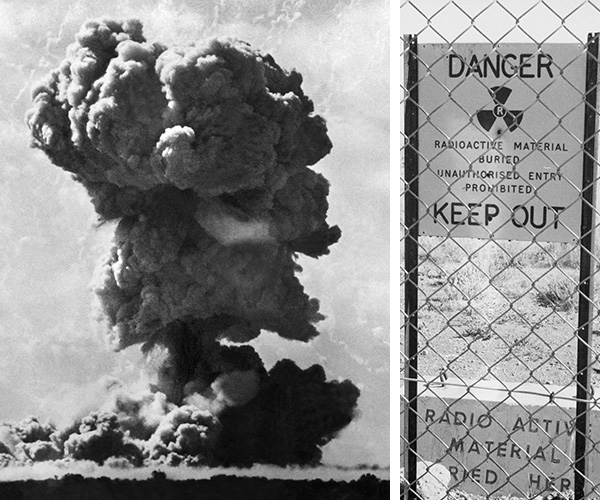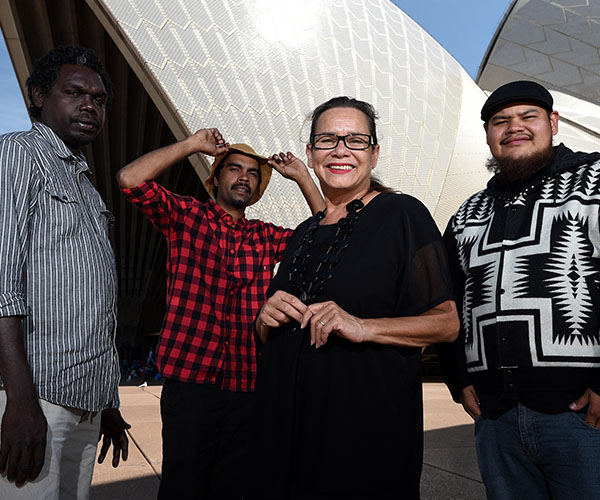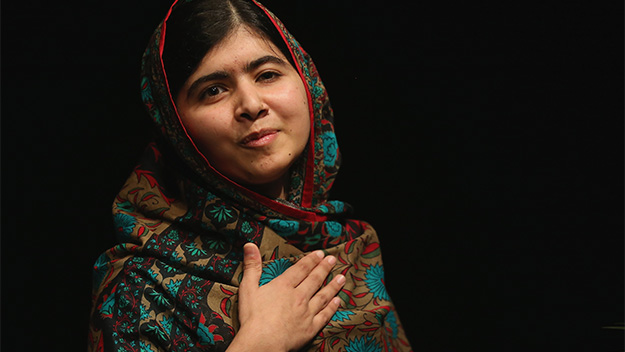When we hear about nuclear weapons, we think of the notorious and devastating Hiroshima and Nagasaki bombings, but what about Australia? For years, Indigenous communities in South Australia endured extreme nuclear weapon testing at the hands of the British government. It resulted in devastating, long-lasting health effects, if not death. But unlike the bombings in Japan, Australia’s history of atomic testing is rarely discussed.
The British and Australian governments said they chose barren, largely unpopulated areas to conduct the testing. But people were living there and, in the fallout, some suffered immediate health problems like rashes and skin infections while others were hit with autoimmune diseases later in life.
From 1947 until 1996, the Pacific underwent 315 nuclear tests and it was Indigenous people who felt the brunt of the fallout.
In Australia specifically, the UK carried out 12 major nuclear tests, even dropping a 15-kilotonned atomic device in Maralinga – a weapon with the same explosive strength as the infamous Little Boy dropped on Hiroshima, although a completely different design.
Hundreds of nuclear tests were conducted in Australia
They also carried out a few hundred smaller scale tests at Emu Field and Maralinga in South Australia throughout the ’50s and ’60s. Although the testing was shrouded in secrecy for decades, through oral history the Yankunytjatjara, Anangu and Pitjantjatjara people remembered the day the ground shook and the suffocating black mist rolled in.
The devastating effects of nuclear testing in South Australia is something prominent anti-nuclear activist Karina Lester knows all too well. Her father, Yami Lester, was an Aboriginal elder blinded by nuclear fallout when he was a child and he spent his life raising awareness for the dangers of nuclear weapons.
“My dad spoke of that day a lot. People in the community had skin infections, rashes, people were violently vomiting. The nuclear tests would happen in the morning and by the evening, people were already sick,” Karina told Now To Love.
“The older generations really felt the brunt of that fallout, and the younger generation too. Our young that were there at the camp, infants and young children, were really exposed to that radiation fallout as well, so death – people passed on.
“My grandmother would tell her own story about digging the graves for her parents, my great-grandparents, and they are just horrific stories.”
Even 60 years later, the effects of the testing are far from a distant memory for Karina’s family. Her sister, and fellow anti-nuclear campaigner, Rose Lester, suffers from an autoimmune disease she says was caused by the nuclear tests, and the pair’s father Yami saw his life change irreversibly just years later.
“In 1953, they conducted their nuclear testing in Emu Field. By 1957, Dad’s world was in total darkness,” Karina explained.
But it was more than just physical wounds
“Many of my older generations were loaded on a truck and moved far from their traditional lands to Yalata and Ceduna communities, or even as far as Gerard on the River Murray and then up to Port Augusta and Coober Pedy,” Karina told Now To Love.
“They were relocated off their traditional lands, moved from their homes, and it had a devastating impact on their mental health and wellbeing.
“Those lands they tested on, they were lands we traditionally used for hunting and gathering; lands we were spiritually connected to, and that was proven by Royal Commission.”
The physical and emotional pain caused by the testing was only magnified by the Australian government’s refusal to accept any wrongdoing.
“My dad heard an interview with Ernest Titterton [a British nuclear physicist] on ABC Radio saying indigenous people were informed about the testing in advance. He said that Aboriginal people had been cared for and moved away,” Karina remembers.
“Mr Titterton may have gone and spoken to the white pastoralists, but no one ever spoke to the Aboriginal community. They couldn’t, they didn’t speak our language.
“It was after that interview Dad decided he had to do something – to hold someone responsible. He talked to our people and they decided it was finally time our story was shared.”
It’s because of people like Karina’s dad Yami Lester the International Campaign to Abolish Nuclear Weapons (ICAN) was founded.
According to the Stockholm International Peace Research Institute (SIPRI), nine nations hold approximately 16,300 nuclear weapons.
The five countries that are “legally recognised nuclear weapon states” are:
China
France
Russia
The U.K
And the USA
The other four are:
India
Pakistan
Israel
And North Korea
Despite Russia and the United States reducing their inventories, they hold more than 93 per cent of all operational nuclear warheads.
What is ICAN?
Australian co-founder Dimity Hawkins says the campaign is all about challenging the idea that nuclear weapons need to be a part of our lives.
“Australia has its own gruesome history with nuclear weapons which no one wants to relive, but for so long we kept running into the walls of the nuclear weapons states who said we couldn’t get rid of them,” she explains to Now To Love.
“But we don’t need them and we’re going to get rid of them.”
From its humble beginnings in Melbourne, ICAN spread across the world and last year saw over 122 countries adopted their Treaty on the Prohibition of Nuclear Weapons. Karina’s dad lived to see the United Nations agree to the treaty but sadly died just two weeks later, without seeing any commitment from Australia.
The campaign’s successful lobbying of the UN to launch negotiations on a prohibition treaty actually saw them win Australia’s first home-grown Nobel Peace Prize last year – a phenomenal achievement that went unacknowledged by the prime minister.
“I think if it had been almost anything else, he would’ve had the grace to acknowledge that,” Dimity admitted. “But what worries me more, by far, is that Malcolm Turnbull has said the reason he can’t do that is because we rely on the U.S for their nuclear weapons.
“How can this country possibly rely on nuclear weapons? They are so indiscriminate and so devastating; to the environment, to your health, to communities.”
“To say that is the reason we can’t even congratulate these people is a crime. We have to really challenge that, to challenge the idea that Australia needs to rely on the weapons of another state; that’s the bigger crime to me.”
Australia isn’t one of the countries in possession of nuclear weapons, but that doesn’t mean we shouldn’t be incredibly wary of their existence.
“There are 15,000 nuclear weapons in the world right now. These weapons are not respecters of borders and boundaries. These weapons do not just drop on some people. These weapons can devastate the whole, entire earth,” Dimity warned.
“That sounds so extreme but that’s because it is so extreme.”
The government’s insistence we rely on nuclear weapons for security is particularly troubling to Dimity because it implies there’s a circumstance that we’d use them against people, despite knowing the abdominal ramifications.
“They’re not an instrument of diplomacy, they shouldn’t be used as a protective shield,” she pointed out.
“There are no safe hands for these weapons. Yes there are some you can imagine being a little less stable, but anyone who has these in their hands and says they rely on them is unstable in my eyes.”
Nuclear warfare is absolutely terrifying. North Korean leader Kim Jong-un recently said in a speech he had a button ready to launch nuclear weapons installed in his desk.The next day US president Donald Trump tweeted that he, too, has a nuclear button, “but it is a much bigger & more powerful one than his, and my Button works!”
With nuclear weapons well and truly back in world leaders’ rhetoric, we can’t be complacent. Just because they’re out of sight; they shouldn’t be out of mind for Australians.


